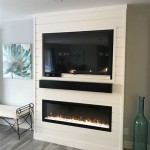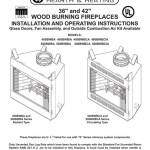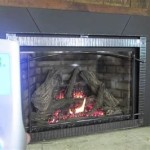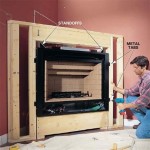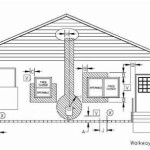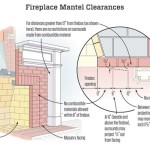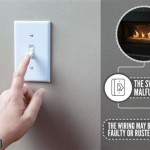Finding Gas for Your Fireplace: A Comprehensive Guide
Fireplaces offer a comforting and aesthetically pleasing focal point in many homes. For those utilizing gas fireplaces, a consistent and reliable source of fuel is essential for optimal performance. This article provides a detailed exploration of how to find suitable gas options for fireplaces near you, covering various fuel types, supplier considerations, safety protocols, and cost factors.
Understanding Gas Fireplace Fuel Options
Gas fireplaces typically operate on one of two primary fuel sources: natural gas or propane (liquefied petroleum gas, or LPG). Each fuel type presents unique advantages and disadvantages, impacting installation requirements, operational costs, and environmental considerations.
Natural Gas: Natural gas is primarily composed of methane and is delivered through underground pipelines maintained by utility companies. This makes it a convenient option for homes already connected to a natural gas line. Advantages include a relatively stable price point, constant supply, and cleaner burning characteristics compared to propane. However, access to natural gas is limited to areas with existing infrastructure and requires professional installation of connection lines.
Propane (LPG): Propane is stored in pressurized tanks, either aboveground or underground, typically supplied by independent propane dealers. This fuel source offers greater flexibility since it doesn't rely on existing pipeline networks. It's often preferred in rural areas or locations without natural gas access. Propane tanks require regular refills and monitoring, and the fuel cost is subject to fluctuations based on supply and demand. Depending on location and usage, above-ground tanks can sometimes present aesthetic challenges.
The selection of fuel depends heavily on the availability of natural gas infrastructure, personal preferences, and cost evaluations. A professional assessment of the home's location and existing utility connections is crucial during the decision-making process.
Locating Gas Suppliers Near You
Identifying reputable and reliable gas suppliers is paramount for ensuring a consistent and safe fuel supply for your fireplace. Different methods can be employed to locate potential suppliers, each offering varying levels of detail and convenience.
Online Directories and Search Engines: Search engines such as Google, Bing, and Yelp can be used to identify gas suppliers in specific geographic areas. Keywords like "natural gas suppliers near me" or "propane delivery services [your city/town]" will provide a list of local businesses along with contact information, customer reviews, and website links. Online directories like Angie's List or the Better Business Bureau (BBB) can offer additional insights into a supplier's reputation and service quality.
Utility Company Referrals: If your home is already connected to a natural gas line, contacting your local utility company is a useful first step. They can provide information on approved gas suppliers in your area and may even offer bundled service packages for gas supply and maintenance. Often utility companies have preferred vendor lists based on regulatory requirements or quality control measures.
Neighbor Recommendations: Seeking recommendations from neighbors, friends, or community groups can be a valuable source of information. Personal experiences and firsthand accounts can offer insights into the reliability, pricing, and customer service of different gas suppliers. This method can also uncover smaller, locally-owned businesses that may not be as visible through online searches.
Professional Installation Contractors: Fireplace installation and maintenance contractors often have established relationships with local gas suppliers. They can provide recommendations based on their experience and may even be able to arrange for gas delivery services as part of the installation process. These contractors are often familiar with the specific gas requirements of different fireplace models.
Once a list of potential suppliers is compiled, it's essential to conduct thorough research to assess their suitability. Factors to consider include years of experience, licensing and insurance, customer reviews, pricing policies, delivery schedules, and emergency services availability.
Key Considerations When Choosing a Gas Supplier
Selecting the right gas supplier involves more than simply finding the lowest price. A comprehensive evaluation of several key factors is crucial for ensuring a safe, reliable, and cost-effective fuel supply for your fireplace.
Pricing Structure and Contract Terms: Gas suppliers typically offer various pricing plans, including fixed-rate, variable-rate, and indexed-rate options. Fixed-rate plans provide price certainty for a specified period, while variable-rate plans fluctuate based on market conditions. Indexed-rate plans tie the gas price to a specific market index. Careful consideration should be given to the contract terms, including the length of the contract, termination fees, and any automatic renewal clauses. It's important to understand the pricing structure and potential fluctuations before making a commitment.
Safety Record and Certifications: Gas suppliers must adhere to strict safety regulations and maintain necessary certifications to ensure the safe handling and delivery of gas. Inquire about the supplier's safety record, including any accidents or violations reported to regulatory agencies. Verify that their employees are properly trained and certified in gas handling procedures. Request information about their safety protocols for leak detection, emergency response, and pipeline maintenance. Checking for certifications from organizations like the National Propane Gas Association (NPGA) can provide assurance of adherence to industry standards.
Customer Service and Reliability: A responsive and reliable customer service department is essential for addressing any questions, concerns, or emergencies that may arise. Evaluate the supplier's customer service channels, including phone support, email communication, and online portals. Check online reviews and ratings to assess the quality of their customer service and their responsiveness to customer inquiries. Inquire about their emergency service availability, including 24/7 support for gas leaks or other urgent issues. A supplier's ability to provide prompt and efficient service is crucial for ensuring a hassle-free experience.
Delivery Options and Availability: Consider the supplier's delivery options, including automatic delivery, on-demand delivery, and will-call options. Automatic delivery relies on the supplier monitoring your gas usage and scheduling deliveries as needed. On-demand delivery requires you to contact the supplier to request a delivery when your tank is running low. Will-call options require you to physically pick up the gas from the supplier's location. Evaluate your gas usage patterns and choose a delivery option that best suits your needs. Ensure that the supplier can reliably deliver gas to your location, especially during peak seasons or inclement weather. Ask about their delivery schedules and any potential delays.
Environmental Considerations: While both natural gas and propane are relatively clean-burning fuels compared to other energy sources, it's essential to consider the environmental impact of your gas supplier's operations. Inquire about their efforts to reduce emissions, promote energy efficiency, and support renewable energy initiatives. Some suppliers may offer carbon offset programs or renewable energy credits to mitigate the environmental impact of gas consumption. Choosing a supplier committed to environmental sustainability can align with your values and contribute to a cleaner environment.
By carefully evaluating these key considerations, homeowners can make informed decisions when selecting a gas supplier for their fireplaces. The process should involve comparing multiple providers, thoroughly reviewing contract terms, and prioritizing safety and customer service.
Safety Protocols and Emergency Procedures
The safe operation of a gas fireplace is paramount, requiring strict adherence to safety protocols and a clear understanding of emergency procedures. Gas leaks are a serious hazard that can lead to explosions or carbon monoxide poisoning.
Carbon Monoxide Detectors: Install carbon monoxide detectors near your fireplace and in other areas of your home. Test the detectors regularly to ensure they are functioning properly. Replace batteries annually or as recommended by the manufacturer. Carbon monoxide is a colorless, odorless gas that can be deadly. Detectors provide an early warning of its presence.
Regular Inspections and Maintenance: Schedule regular inspections and maintenance of your gas fireplace by a qualified technician. Inspections should include checking for gas leaks, cleaning the burner assembly, and verifying proper ventilation. Maintenance should involve cleaning and lubricating moving parts, replacing worn components, and adjusting the gas pressure. Neglecting maintenance can lead to malfunctions or safety hazards.
Gas Leak Detection: Be vigilant for signs of a gas leak, such as a rotten egg smell, a hissing sound near gas lines, or dead vegetation around gas pipes. If you suspect a gas leak, immediately evacuate the premises and contact your gas supplier or local fire department from a safe location. Do not use any electrical devices or open flames inside the building. Propane has an odorant added to it to make it detectable, so any unusual smell should be taken seriously.
Emergency Shut-Off Procedures: Familiarize yourself with the location of the gas shut-off valve for your fireplace and for your entire home. Learn how to shut off the gas supply in the event of an emergency. Keep a wrench or other necessary tool readily accessible near the shut-off valve. Knowing how to quickly shut off the gas supply can prevent further damage or injury.
Ventilation: Ensure that your gas fireplace is properly ventilated to prevent the buildup of carbon monoxide and other harmful gases. Never block or obstruct the fireplace vents. Regularly inspect the chimney or flue to ensure it is clear of obstructions. Proper ventilation is essential for safe and efficient operation.
Educate Household Members: Ensure that all household members are aware of the safety protocols and emergency procedures for the gas fireplace. Conduct regular drills to practice evacuation procedures and emergency shut-off procedures. Teach children about the dangers of playing near the fireplace and the importance of reporting any unusual smells or sounds. Education is key to preventing accidents and ensuring everyone's safety.
By implementing these safety protocols and adhering to emergency procedures, homeowners can minimize the risk of accidents and ensure the safe operation of their gas fireplaces. Regular maintenance, vigilance for gas leaks, and a clear understanding of emergency procedures are essential for protecting your home and family.
Cost Considerations for Gas Fireplace Fuel
The cost of operating a gas fireplace can vary depending on several factors, including the type of fuel used, the efficiency of the fireplace, and the frequency of use. Understanding these cost considerations is crucial for budgeting and making informed decisions about fuel selection and usage.
Fuel Prices: Natural gas prices are typically measured in dollars per therm (a unit of heat energy), while propane prices are measured in dollars per gallon. Natural gas prices tend to be more stable than propane prices, which can fluctuate based on seasonal demand and supply disruptions. Monitor fuel prices in your area and compare prices from different suppliers to find the best deals. Consider locking in a fixed-rate contract to protect yourself from price increases.
Fireplace Efficiency: The efficiency of a gas fireplace refers to the percentage of fuel that is converted into usable heat. High-efficiency fireplaces typically have higher upfront costs but can save money on fuel bills in the long run. Look for fireplaces with Energy Star ratings to ensure optimal efficiency. Consider factors such as the type of venting system, the presence of a blower fan, and the insulation of the firebox when evaluating efficiency.
Usage Patterns: The amount of gas consumed by your fireplace will depend on how frequently you use it and the temperature setting. Using the fireplace for extended periods or at high heat settings will increase fuel consumption. Consider using a programmable thermostat to automatically adjust the fireplace's temperature based on your schedule. Use the fireplace sparingly during periods of mild weather to conserve fuel.
Installation Costs: The initial cost of installing a gas fireplace can vary depending on the complexity of the installation and the need for new gas lines or venting systems. Natural gas connections typically require professional installation by a licensed plumber or gas fitter. Propane installations may require the installation of a propane tank and associated piping. Obtain quotes from multiple contractors and compare prices and services before making a decision.
Maintenance Costs: Regular maintenance of your gas fireplace can help to ensure its efficient operation and prevent costly repairs. Budget for annual inspections and maintenance by a qualified technician. Replacing worn components, cleaning the burner assembly, and adjusting the gas pressure can help to extend the lifespan of your fireplace and improve its performance.
Other Costs: Consider other potential costs associated with operating a gas fireplace, such as the cost of carbon monoxide detectors, fireplace accessories, and insurance premiums. Carbon monoxide detectors should be replaced periodically to ensure their accuracy. Accessories such as fireplace screens and decorative logs can enhance the aesthetic appeal of your fireplace. Insurance premiums may increase if you install a gas fireplace.
By carefully considering these cost factors, homeowners can make informed decisions about fuel selection, fireplace usage, and maintenance practices. Monitoring fuel prices, choosing an efficient fireplace, and practicing energy conservation can help to minimize the cost of operating a gas fireplace and maximize its value.

Gas Fireplace Inserts At Com

Gas Fireplaces Toledo 1 Pros Luce S Chimney Stove

Ceramic Fiber Gas Fireplace Logs Near Me At Com

Valor Fireplaces Natural Gas Propane Electric

Gas Fireplace And Fire Pit Services In Detroit Motown

The 10 Best Fireplace Installers Near Me With Free Quotes

Duluth Forge Gas Fireplaces Near Me At Com

What To Know About Gas Fireplace Insert Installationa Noble Sweep

Free Standing Light Gas Fireplaces Near Me At Com

Fireside Stove And Fireplace Center Offering Wood Stoves Gas Pellet Fireplaces Inserts Chimney Liners Accessories Located In Auburn Maine
Related Posts

